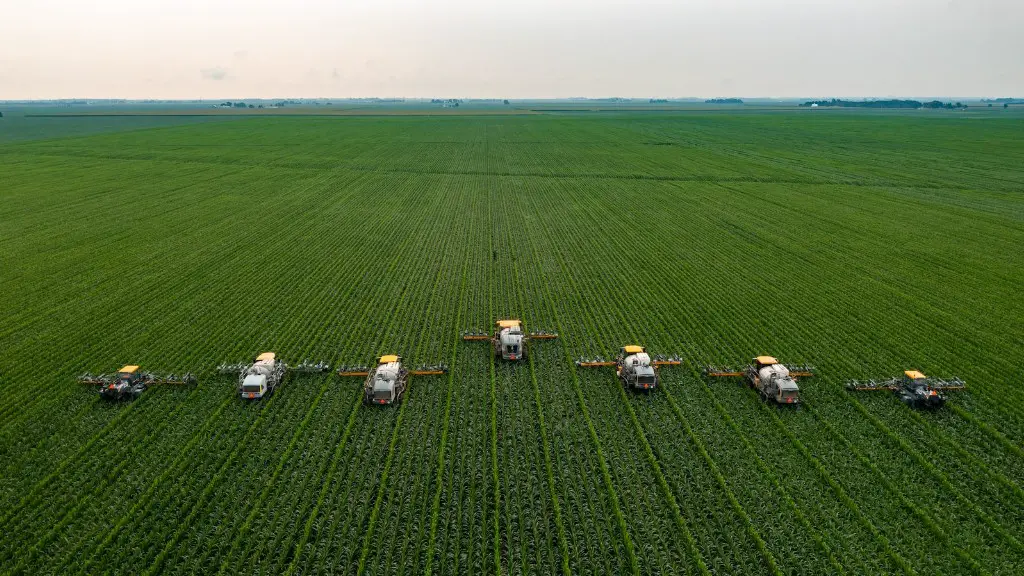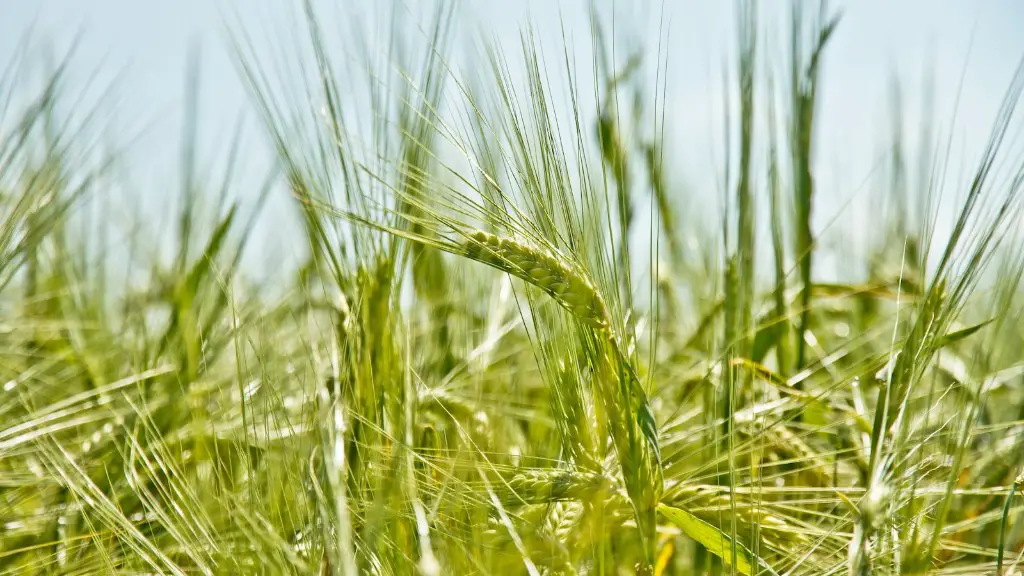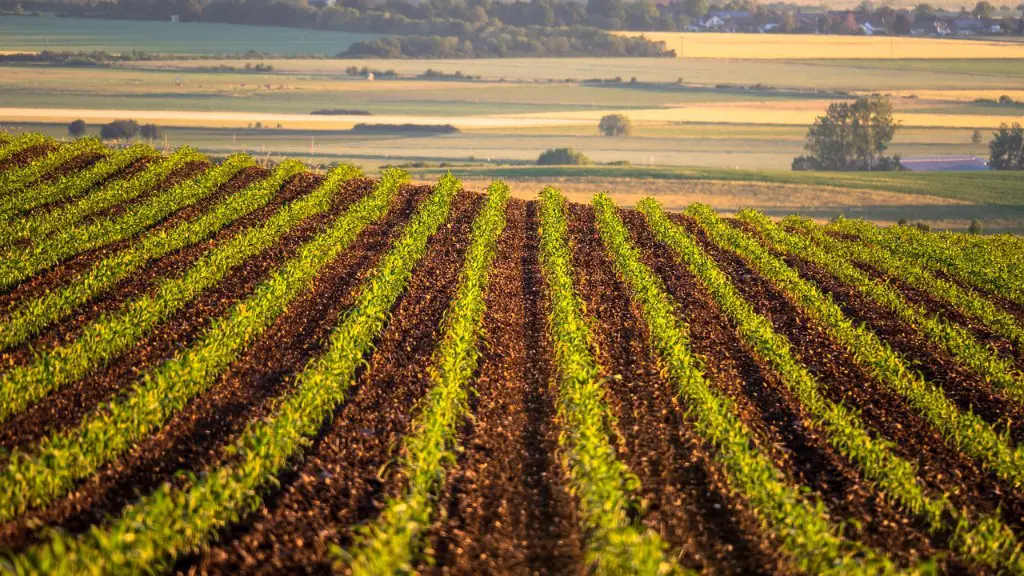Agriculture plays a critical role in economics around the world. It is a major source of income, employment, and food security for many nations. The economic importance of agriculture is difficult to overstate. The sector provides up to 40-50% of GDP in most economies worldwide and is a major source of export earnings. Furthermore, it is an essential part of many countries’ food security strategies. In addition, agro-industries, associated services, and related manufacturing produce both employment and value-added products for export.
Agriculture is the backbone of a nation’s economy. With increasing urbanization, it is becoming increasingly important as a source of food, employment, and income. Also, by providing food security, it ensures that people have enough to eat and that the country does not fall into famine. Agriculture has significant developments in economies due to its importance and value. Countries with advanced farming technology are successful in increasing their exports, earning foreign currency which can be used to provide other services, and improving the national economy.
Another economic importance of agriculture is the production of raw materials. Raw materials such as cotton, wool, and jute are used in the manufacturing and textile industry. Agriculture is a source of these raw materials and can therefore play a role in creating jobs and increasing the income of people in the industry. In addition, it provides a large variety of products, such as fruits and vegetables, that are used as raw materials in the processing industry.
Furthermore, agriculture is an important government revenue generator. Governments typically levy taxes and duties on agricultural products, and these revenues are used for the development of rural areas. In addition, governments often use subsidies and incentives to support the agricultural sector and encourage farmers to increase production. This can stimulate domestic demand and be a source of income for the government.
In addition, agriculture has an important role in providing gainful employment. Agriculture employs millions of people, from different social strata, and provides employment opportunities for able-bodied and disabled individuals. This is important for countries with no or insufficient industries to provide adequate employment opportunities for its citizens.
Finally, agriculture is a key determinant of agricultural growth in most countries. It is through agricultural productivity and government assistance that farmers can increase agricultural production, thus leading to higher economic growth. Improved production can lead to higher wages and better living standards, as well as improved access to markets.
Overall, the economic importance of agriculture is immense. It provides food security, raw materials, generates government revenue, generates gainful employment, and determines economic growth. Countries with advanced agricultural technology have higher economic growth rates and better standards of living compared to those with stagnant or declining agricultural sectors.
Food Security
Food security is an important economic consequence of agriculture. It involves the ability to provide a stable food supply for communities and nations. To achieve food security, it is essential to produce enough food to meet the demand, including pathways for food distribution, food preserving and storage. Farming plays a pivotal role in helping to increase food availability for communities, thus contributing to overall economic security. In addition to providing food, it helps to stabilize prices by supplying food at times of peak demand, thus protecting against potential price increases from supply shortages.
Improving agricultural productivity can also help to increase food production, contributing to overall food security. This can help make food more affordable, reducing the burden of poverty and hunger. Improved agricultural productivity can also contribute to the economic stability of the communities. With more food available at discounted prices, people have greater access to nutritiously balanced meals and can avoid episodes of malnutrition and hunger.
The UN’s Food and Agriculture Organization (FAO) works to promote food security around the world. It supports small-scale farmers with knowledge and access to technology and infrastructure to increase productivity and reduce hunger. Additionally, the FAO advocates for improved public spending on agricultural investments, including seeds and supplies, and improved irrigation and drainage systems.
The FAO works to protect threatened croplands in order to prevent conversion or destruction of native vegetation by providing increased visibility on land-use regulations and private-sector investments. This can create sustainable farming systems and ensure access to food and income for the most disadvantaged. Together, these efforts support economic security in communities around the world.
Agriculture plays a key role in supporting the economic security of nations around the world. It provides access to food, creates jobs, and generates income. For low-income countries, food security rests on the shoulders of small-scale farmers and their ability to produce enough to feed the world’s population. By investing in programs that help farmers increase their yields, communities can benefit from increased economic security.
Employment Opportunities
Agriculture also helps to provide employment opportunities for people, helping to create a more equitable economy. By supplying job opportunities, it can help reduce poverty and alleviate unemployment. It might not be able to provide high wages, but it offers alternative employment in rural areas.
In developing countries, it has been found that more people are employed in agriculture than any other sector. This number is especially high in certain African countries and India. By improving access to inputs, such as improved seed varieties, as well as subsidies and incentives, farmers can increase their productivity and job opportunities.
Agriculture also has the potential to create new job opportunities in agro-industries. These industries take raw materials, such as sugar and cotton, and turn them into finished goods, such as sugar candies and clothes. This contributes to employment in processing, packaging, and distribution. Moreover, it is an opportunity for agro-based industries to specialize in product processing, creating value-added goods, and enhancing local economies.
Agriculture can also generate employment opportunities through the sale of goods, such as fruits and vegetables, and the logistics associated with distribution. This can help to increase demand for these goods, thus providing employment and creating access to income for the local population.
Overall, it is evident that the economic importance of agriculture cannot be underestimated. It has numerous benefits, including food security, raw material production, government revenue, and employment. By investing in programs and initiatives to ensure agricultural productivity and economic stability, governments can create a secure economic future for their citizens.
Export Earnings
The economic importance of agriculture also extends to export earnings. The sector provides up to 40-50% of GDP for most economies worldwide and is a major source of export earnings. This is largely due to the production of value-added goods and services.
Export earnings from agricultural goods and services help to support a nation’s economy. The revenue earned from exports contributes to the national treasury and boosts the economy. This revenue can then be used to invest in infrastructure, health care, and educational resources. Furthermore, the government can reinvest this revenue in the agricultural sector to help increase production and create a more stable and productive economy.
Export earnings also can help to strengthen investment and financing operations. States often rely on financial investments by foreign entities when a country needs to finance large-scale projects like infrastructure projects. These investments are often assisted by export earnings and higher export earnings often lead to an increase in investments and capitalization.
Additionally, exporting agricultural products is essential for those countries that rely on export earnings to be able to pay for imported goods. In some countries, the vast majority of their imports come from abroad and their export earnings are the only avenue for financing their imports.
Finally, exporting agricultural products can also help create an increase in demand for products from other sectors. When food is exported, it opens up markets for other products, such as high-value foods, as well as equipment and technology. This can provide an added benefit for the domestic economy, as well as for the exporters.
Rural Development
Rural development is another economic benefit of agriculture. Rural areas are often prone to poverty and have limited access to other economic activities. Therefore, agriculture plays a crucial role in helping to reduce poverty by creating employment and income opportunities through the production of goods and services.
In addition to providing jobs and employment, rural development also helps to provide basic services to people living in rural areas. These services can include access to clean water, electricity, sanitation facilities, and healthcare. These services are essential for ensuring basic human rights and providing adequate living standards.
Furthermore, rural development can help to stimulate economic diversification. By diversifying the economy, it can reduce the dependence on one or two sectors, such as the agricultural sector, and create the potential for other industries to thrive. This can be achieved by providing the infrastructure and resources needed for other sectors to grow, such as transportation and logistics facilities.
Additionally, rural development can help to create linkages between rural and urban areas. This includes the development of roads and other infrastructure, which can improve access to markets and enable local products to be transported to urban areas.
Overall, rural development plays an important role in promoting economic growth and reducing poverty in rural areas. It helps boost the economy through employment and income opportunities, as well as improving access to basic services such as healthcare and sanitation. Furthermore, it helps to stimulate economic diversification and provide linkages between rural and urban areas.
Subsidies and Incentives
Subsidies and incentives are often used to support the agricultural sector and promote economic growth. These are often subsidies that are used to support the farming sector in terms of the cost of inputs, such as fertilizer, chemicals, and seed. Subsidies also often go towards the cost of labour and infrastructure, as well as helping to improve access to markets. This can help to increase agricultural productivity and lead to higher profits.
Incentives are also used to support the farming sector. These typically include tax exemptions, government grants, and loans. These incentives often help to reduce the cost of inputs and mitigate the risk associated with farming. They can also help to create employment opportunities in the sector.
In addition to directly supporting the farming sector, subsidies and incentives also support the agro-industries. These industries rely on agricultural products, such as cotton, as raw material inputs, and by providing incentives to the farming sector, it helps to reduce the cost of raw materials for the industry.
Overall, subsidies and incentives play an important role in promoting economic growth and development. They can help to increase agricultural production by reducing the cost of inputs, mitigating risks, and improving access to markets and employment. Furthermore, they can also help to reduce the cost of raw materials for agro-based industries, thus contributing to the overall economic growth of a nation.





